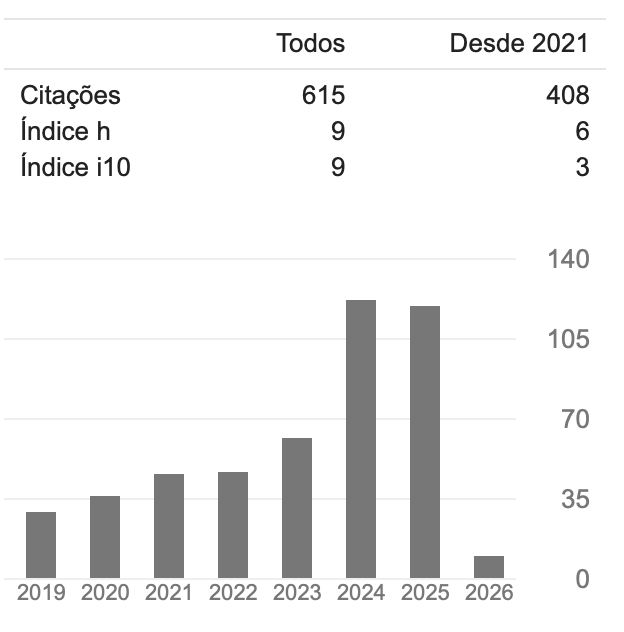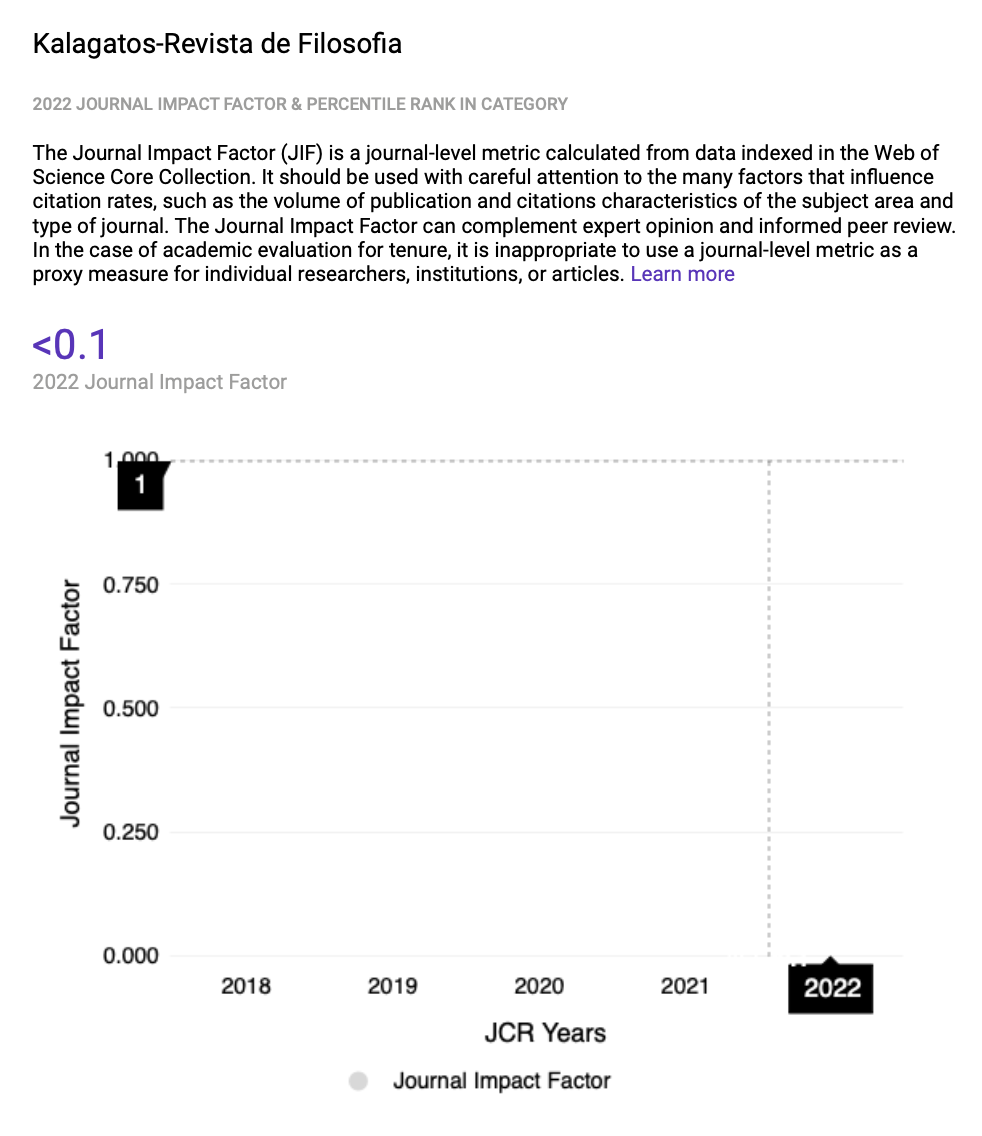A estrutura do ouvido: Cicatrizes
Scars
DOI:
https://doi.org/10.52521/kg.v22i1.14540Palavras-chave:
Derrida, Ouvido, Benjamin, Heidegger, NietzscheResumo
O artigo trata de mostrar que há uma “estrutura do ouvido” tacitamente anunciada por alguns textos de Derrida, produzida pelo seu próprio gesto de cortar notas, orações e frases de seus textos ao longo dos anos. Especificamente, examina-se a relação entre Otobiographies (Derrida, 1984), “Prénom de Benjamin” (Derrida, 1994a) e “Geschlecht IV” (Derrida, 1994b). Propõe-se que se podem ouvir outros sentidos no que se diz em “Prénom de Benjamin”, seguindo as cicatrizes desses cortes nos textos em suas diferentes versões. A exposição começa considerando momentos da relação de Derrida com o Estruturalismo, derivando daí que essa relação pode ser caracterizada pela multiplicação de estruturas, aproximando-se dos traços que Deleuze (1972) reconhecia como “estruturalistas”. Logo, entra-se na substância do artigo tendo em mente que uma “estrutura do ouvido” se projeta em negativo ao se acompanharem as considerações explícitas de Derrida acerca do ouvido constrasando-as com o que se ouve nos cortes realizados em seu texto.
Downloads
Referências
AVELAR, Idelber. The letter of violence, New York, Palgrave, 2004.
BENJAMIN, Walter. Zur Kritik der Gewalt, in: BENJAMIN, Walter. Gesammelte Schriften, Hrsg. von Rolf Tiedemann und Hermann Schweppenhäuser, Zweiter Band, Frankfurt am Main, Suhrkamp, 1991 [1921], p. 179-203.
DELEUZE, Gilles. Nietzsche et la philosophie, Paris, PUF, 1962.
DELEUZE, G. Differénce et répetition, Paris, PUF, 1968.
DELEUZE, G. Logique du sens, Paris, Minuit, 1969.
DELEUZE, G. A quoi reconnaît-on le structuralisme?, in: DELEUZE, G. L’île déserte. Textes et entretiens 1953-1974, Paris, Minuit, 2002 [1972], p. 238-269.
DERRIDA, Jacques. L’écriture et la différence, Paris, Seuil, 1967a
DERRIDA, J. De la grammatologie, Paris, Minuit, 1967b.
DERRIDA, J. Marges: de la philosophie, Paris, Minuit, 1972.
DERRIDA, J. Otobiographies. L'enseignement de Nietzsche et la politique du nom propre, Paris, Galilée, 1984.
DERRIDA, J. Otobiographies. The Teaching of Nietzsche and the Politics of the Proper Name, Translated by Avital Ronell, New York, Schocken Books, 1985.
DERRIDA, J. Schibboleth. Pour Paul Celan, Paris, Galilée, 1986.
DERRIDA, J. Force de loi: le "fondement mystique de l'autorite"/Force of Law: The “Mystical Foundation of Authority”, translated by Mary Quaintance, Cardozo Law Review, v. 11, n. 5-6, p. 919-1045, 1990. Disponível em: https://larc.cardozo.yu.edu/clr/vol11/iss5/2. Acesso em 19 Nov. 2024.
DERRIDA, J. Force of Law: The “Mystical Foundation of Authority”, translated by Mary Quaintance, in: CORNELL, Drucilla et al. (Eds.). Deconstruction and the possibility of justice, New York, Routledge, 1992, p. 3-67.
DERRIDA, J. Heidegger’s Ear: Philopolemology (Geschlecht IV), translated by John P. Leavey Jr, in: SALLIS, John (Ed.). Reading Heidegger. Commemorations, Bloomington, Indiana University Press, 1993a, p. 163-220.
DERRIDA, J. Prégnances: Lavis de Colette Deblé, Paris, L'Atelier des Brisants Éditions, 1993b
DERRIDA, J. Force de loi: «le fondement mystique de l'autorite», Paris, Gallilée, 1994a.
DERRIDA, J. L'oreille de Heidegger: Philopolémologie (Geschlecht IV), in: DERRIDA, J. Politiques de l'amitié suivi de L'oreille de Heidegger, Paris: Galilée, 1994b, p. 343-419.
DERRIDA, J. Force of Law: The “Mystical Foundation of Authority”, translated by Mary Quaintance. In: DERRIDA, J. (Auth.); ANIDJAR, GIL (Ed.). Acts of Religion, New York, Routledge, 2001, p.228-298.
DERRIDA, J. Béliers. Le dialogue ininterrompu: entre deux infinis, le poème, Paris, Galilée, 2003.
EAGLETON, Terry. Literary theory. Minneapolis, University of Minnesota Press, 1983.
EILAND, Howard; JENNINGS, Michael W. Walter Benjamin: a critical life. Cambridge: Harvard University Press, 2014.
HEIDEGGER, Martin. Sein und Zeit. Tübingen: Max Niemeyer Verlag, 2001 [1927].
HEIDEGGER, M. Einführung in die Metaphysik (GA 40), Frankfurt am Main, Vittorio Klosterman, 1983 [1935/1953].
HEIDEGGER, M. Was ist das - die Philosophie?, in: HEIDEGGER, M. Identität und Differenz (GA 11), Frankfurt am Main, Vittorio Klosterman, 2006 [1955], p. 3-26.
HEIDEGGER, M. Die Sprache. In: HEIDEGGER, M. Unterwegs zur Sprache (GA 12), Frankfurt am Main: Vittorio Klosterman, 1985 [1950], p. 7-30.
KALAGATOS. Dossiê: Atualidade do estruturalismo, 2024, disponível em: https://revistas.uece.br/index.php/kalagatos/announcement/view/203, acesso em 19 Nov. 2024.
KENNEDY, Ellen. Carl Schmitt and the Frankfurt School, Telos: Critical Theory of the Contemporary, n. 71, p. 37-66, 1987, disponível em http://journal.telospress.com/content/1987/71/37, acesso em 19 Nov. 2024.
KENNEDY, Ellen. Carl Schmitt and the Frankfurt School: A Rejoinder, Telos: Critical Theory of the Contemporary, n. 73, p. 101-116, 1987, disponível em: http://journal.telospress.com/content/1987/73/101.short/, acesso em 19 Nov. 2024.
MCDONALD, Christie. Preface, in: DERRIDA, J. Otobiographies. The Teaching of Nietzsche and the Politics of the Proper Name, translated by Avital Ronell, New York: Schocken Books, 1985, p. vii-x.
NAYAR, Pramod. Contemporary Literary and Cultural Theory: From Structuralism to Ecocriticism, 1. ed., New Delhi, Pearson, 2010.
SALLIS, John. Aknowledgments, in: SALLIS, John (Ed.). Reading Heidegger. Commemorations, Bloomington, Indiana University Press, 1993, p. viii.
TOMBA, Massimiliano. Justice and Divine Violence: Walter Benjamin and the Time of Anticipation, Theory & Event, v. 20, n. 3, p. 579-598, 2017, disponível em: https://muse.jhu.edu/article/664826, acesso em 19 Nov. 2024.
WILDE, Marc de. Meeting Opposites: The Political Theologies of Walter Benjamin and Carl Schmitt, Philosophy & Rhetoric, v. 44, n. 4, p. 363-381, 2011, disponível em: https://muse.jhu.edu/article/458270, acesso em 19 Nov. 2024.
Downloads
Publicado
Como Citar
Edição
Seção
Licença
Copyright (c) 2025 Enrique Nuesch

Este trabalho está licenciado sob uma licença Creative Commons Attribution 4.0 International License.



















